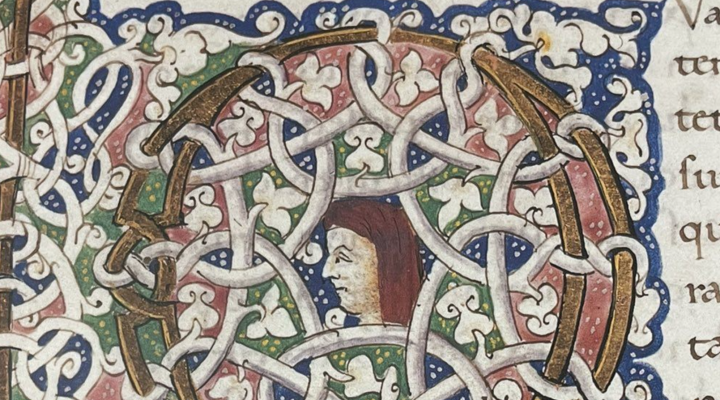After the assassination Julius Caesar, Cicero wrote “On Obligations” to his son Marcus, who was studying in Athens. He obviously meant it for the public as well, but it has the sense of a father writing to a son.
Virtue Ethics
Why Reflect on Creation? Answer: Because God Made Everything to Reflect Himself
Why reflect on creation? Answer: because God made everything to reflect himself—and he is our beatitude. So pursue medicine, arts, nature, and crafts for the sake of happiness, eudaimonia, makarios, or whatever term you prefer.
Human culture can cultivate the goodness of creation which itself shares in the goodness of God. Or it can vitiate what is good and descend into non-being.
One promises beatitude; the other non-being.
So build well. Love what you create. Enjoy God’s gifts.
[Read more…] about Why Reflect on Creation? Answer: Because God Made Everything to Reflect Himself
The Responses to John Piper’s Article Reveal Three Deeper Conflicts than Mere Politics
John Piper’s recent explanation for why he chose to write-in his vote rather than choose one of the two main presidential candidates has resulted in a whole host of responses. Some partially seem to misunderstand Piper, while others have expressed well-reasoned counter-arguments.
In today’s politically charged climate, I think we can appreciate the differences of opinions. That said, I am not here interested in defining who Americans should vote for. I am entirely interested in pursuing the question of why Christians have agreed or disagreed with Piper. I think the answer to that question reveals quite a surprising set of undergirding differences.
The responses to John Piper’s article reveal deeper oppositions of:
1. Utilitarian consequentialism and virtue ethics (which one takes priority)
2. Pietism and theonomistic reasoning (of a sort)
3. Metaphysics/real natures and nominalism
In this article, I want to briefly explain what I mean and why it matters. [Read more…] about The Responses to John Piper’s Article Reveal Three Deeper Conflicts than Mere Politics
Character and Consequences (Thoughts about John Piper’s Article on Politics)
John Piper recently released an article that reflects upon the 2020 election. As might be expected in the current political climate, people have begun to discuss the article.
As I read it, I perceive that Piper is making the claim that a good leader leads to a good society. Proverbs 29:12 says, “If a ruler listens to lies, all his officials will be wicked.” Positively, Jesus affirms that good fruit grows from a good root (e.g., Matt 15:19). When one’s heart is right, then he or she will do right.
Here then it seems that Piper emphasizes a traditional and biblical way to understand moral character and leadership. Christians generally have underscored the importance of virtue (character) in their leaders because virtuous people created virtuous laws.
Conversely, it is almost impossible to predict the future or the consequences of one’s vote for an immoral person. And even if it were possible, it seems morally grey to vote for an immoral person because of an expected just end (i..e, the end does not justify the means). [Read more…] about Character and Consequences (Thoughts about John Piper’s Article on Politics)
How to Navigate Ethics in a COVID19 World
Over the last month, many of us have experienced disbelief, worry, and finally numbness. Due to these concerns, we naturally have tried to define our situation and what we should do. How do we protect the vulnerable? How do we protect our economy? How do these two concerns mesh?
Many experts have put their shoulders to the plow to figure out these matters, and I will not (and cannot) add to these specific questions since I neither have the requisite skill nor the ability to review all the data. What I do have are faith and Christian ethics.
And through these, we can navigate the difficult ethical waters of the coming months with some confidence. [Read more…] about How to Navigate Ethics in a COVID19 World
Review of Commentary on Thomas Aquinas’s Virtue Ethics by J. Budziszewski
Thomas Aquinas was a brilliant biblical exegete whose theological writings work outward from the Sacred Text. In Thomas’ Summa Theologiae, we find a comprehensive summation of biblical theology. Unfortunately, Thomas’ biblical commentaries have gathered dust while his Summa has become a primary textbook. This oversight not only prevents one from appreciating Thomas, but it also would shock the Angelic Doctor since his primary textbook was the Bible. [Read more…] about Review of Commentary on Thomas Aquinas’s Virtue Ethics by J. Budziszewski




